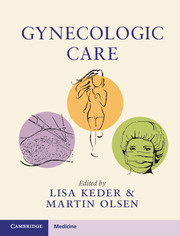Book contents
45 - Medical Ethics
from Section 6 - General Considerations
Published online by Cambridge University Press: 01 February 2018
Summary
Introduction
Ethics is the study of right and wrong, good and evil. It, however, does not always deal with absolutes; instead it often entails a search to find the better option on the moral gradient. The ultimate determination of right and wrong is based on how one knows truth and how one values or orders life. An ethicist is not one who knows all answers, but one who is trained to examine assumptions, ask questions, and identifies relevant pieces of information. Clarifying the logic used to reach a decision may guide the stakeholders to an agreed-upon decisional pathway that allows for variation on points of disagreement.
Medical ethics is an essential component of medical decision making and plays a role, whether recognized or not, in medical practice. Although the practice of ethics is not separate from the culture in which it is embedded, medical ethics does have its own unique history. For more than 2,500 years, the Hippocratic oath was the largely, though inconsistently, accepted basis for medical ethics until 1847 when the American Medical Association presented a formal code of ethics with required behaviors including a physician's moral obligation to a patient (1). Scientific advances as well as political and social changes in the nineteenth and twentieth centuries momentously shaped twenty-first-century medical ethics. Experiences such as the Nazi era of eugenics or the Tuskegee syphilis experiments in the United States highlighted the need for ethical considerations in human experimentation resulting in the articulation of codes and reports on ethical conduct (e.g., Nurnberg, Helsinki, and Belmont). Medical ethics, which consisted largely of ethical guidance given to physicians by physicians, has a history that is at least centuries old, if not millennia. But then in the early to mid-twentieth-century bioethics grew into a formal field. This new multidisciplinary field in the context of wrestling with dilemmas associated with the rise of medical technology and the perceived problem of medical paternalism in clinical practice was popularized in the 1980s with clinical application of four ethical priniciples: beneficence, nonmaleficence, autonomy, and justice (2). These four principles are now taught in training programs worldwide. Many clinicians, however, struggle to know how to apply them, recognizing that they have profound limits in resolving bedside dilemmas.
- Type
- Chapter
- Information
- Gynecologic Care , pp. 430 - 440Publisher: Cambridge University PressPrint publication year: 2018
- 1
- Cited by

